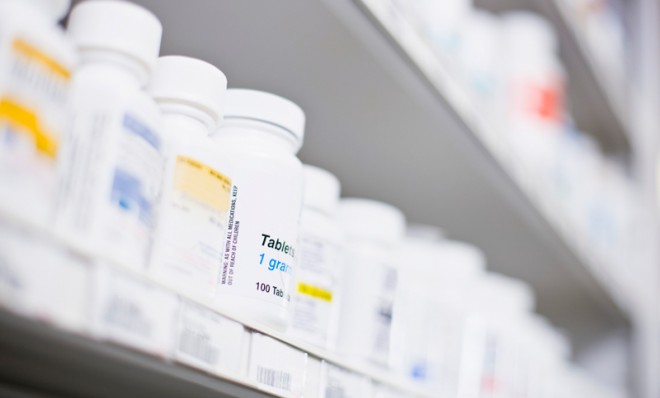What we know so far about the GlaxoSmithKline bribery scandal
It sounds like a plot out of a John Grisham novel

A free daily email with the biggest news stories of the day – and the best features from TheWeek.com
You are now subscribed
Your newsletter sign-up was successful
This week, GlaxoSmithKline (GSK), the British drug giant, admitted that executives in their Chinese operations likely broke Chinese law in a wide-ranging, complex bribery scheme involving $489 million and some 700 travel agencies — all in a bid to boost drug sales and prices throughout China.
"I want to make it very clear that we share the desire of the Chinese authorities to root out corruption wherever it exists. We will continue to work together with the MPS (Ministry of Public Security) and we will take all necessary actions required as this investigation progresses," Abbas Hussain, GSK's international president, said in a statement.
Here's what we know so far:
The Week
Escape your echo chamber. Get the facts behind the news, plus analysis from multiple perspectives.

Sign up for The Week's Free Newsletters
From our morning news briefing to a weekly Good News Newsletter, get the best of The Week delivered directly to your inbox.
From our morning news briefing to a weekly Good News Newsletter, get the best of The Week delivered directly to your inbox.
What does GlaxoSmithKline do exactly?
GSK is a British multinational pharmaceutical company responsible for a long list of popular medications, including the antidepressant Paxil, the diabetes treatment Avandia, and the heartburn medicine Zantac. It's the fourth-largest pharmaceutical company in the world.
What is GSK being accused of?
For years, senior executives at GSK China allegedly billed travel agencies for fake events and services, or over-billed them for actual events.
A free daily email with the biggest news stories of the day – and the best features from TheWeek.com
"We would have some plans for holding some small-scale meetings," Liang Hong, one of the involved executives, said in an interview with CCTV, China's state-run TV network. "Those meetings might not actually happen in the end, but we'd collude with our travel agency and pretend that those meetings happened; then we'd be able to falsify reports for money."
The travel agencies would then submit receipts, enabling the executives to get reimbursed by the company with cash. The executives would then allegedly use the extra funds to bribe doctors, hospitals, and government officials, as well as manipulate drug prices.
How did the travel agencies benefit?
They would skim a share off the top. Reports say the scheme grew so lucrative for the agencies that they started competing with each other, even bribing the GSK executives for the right to do bad business with them.
The New York Times reports, "Sometimes they would induce GSK executives to throw the business their way by offering cash, luxury travel or even by hiring young women to engage in sexual activities — or 'sexual bribery' — with GSK managers, Chinese officials said."
How did the alleged scheme result in higher drug prices?
Drug prices are at least in part based on the price of doing business. "It costs to hold those conferences," Liang said in the TV interview. "Actually, to do anything. Those costs are all included in the price of the medicine. In my recent self-examination, I believe the operational fees occupy a higher proportion than they are supposed to."
When asked for specifics, he said, "The operation cost is about 20 percent to 30 percent of the price."
Who's in trouble?
Four GSK executives, including Liang, are being detained: The head of the legal department, the head of business development, and two vice presidents. All four are Chinese nationals.
How did they get busted?
A whistle-blower tried to expose the scheme earlier this year, but an internal investigation by GSK came up with nil. Later, Chinese authorities noticed the huge discrepancy between the revenue the travel agencies were earning and their bookings, and opened an investigation that led to the charges.
How much will this cost GSK?
It's hard to say at this point, but the company will likely pay for it on a global scale. "Some of the toughest penalties could come in the United States," said The New York Times, "since most major drug makers are subject to the Foreign Corrupt Practices Act, which bars companies from bribing foreign officials to gain or retain business."
Carmel Lobello is the business editor at TheWeek.com. Previously, she was an editor at DeathandTaxesMag.com.
-
 Why is the Trump administration talking about ‘Western civilization’?
Why is the Trump administration talking about ‘Western civilization’?Talking Points Rubio says Europe, US bonded by religion and ancestry
-
 Quentin Deranque: a student’s death energizes the French far right
Quentin Deranque: a student’s death energizes the French far rightIN THE SPOTLIGHT Reactions to the violent killing of an ultraconservative activist offer a glimpse at the culture wars roiling France ahead of next year’s elections
-
 Secured vs. unsecured loans: how do they differ and which is better?
Secured vs. unsecured loans: how do they differ and which is better?the explainer They are distinguished by the level of risk and the inclusion of collateral